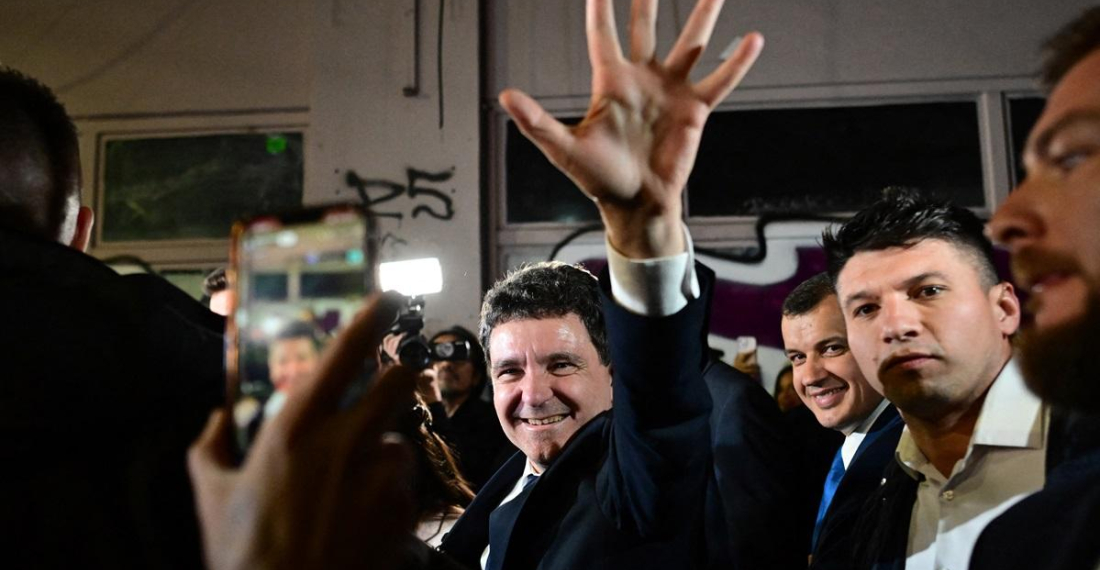Introduction: A Pivotal Electoral "Super Sunday" in Europe
The weekend of May 18, 2025, marked a defining moment in European politics, as Romania, Poland, and Portugal held elections that captured global attention. Dubbed "Super Sunday" by media outlets, these elections were a battleground for competing visions of Europe's future: one rooted in pro-European Union (EU) and NATO-aligned centrism, and another driven by the rising tide of far-right, eurosceptic populism. While centrist candidates and parties secured significant victories, the far-right's unprecedented gains underscored a growing polarization across the continent. This article delves into the outcomes, implications, and underlying dynamics of these elections, exploring their geopolitical significance, the role of voter turnout, and the broader context of Europe's political landscape.
Romania: A Centrist Comeback Amid Geopolitical Stakes
Nicușor Dan’s Historic Victory
Romania’s presidential election concluded with a dramatic victory for Nicușor Dan, the centrist mayor of Bucharest, who secured 53.6% of the vote against far-right nationalist George Simion’s 46.4%. This result was a stunning turnaround for Dan, a 55-year-old mathematician known for his soft-spoken demeanor and anti-corruption stance. Trailing Simion by 20% in the first round on May 4, Dan’s surge in the final days of the runoff was fueled by near-record voter turnout of 65%, the highest in Romania in 25 years. This turnout reflected a robust public rejection of far-right rhetoric and a reaffirmation of Romania’s pro-Western orientation.
Dan’s campaign emphasized Romania’s integration into the EU and NATO, promising to combat systemic corruption and maintain support for Ukraine in its ongoing conflict with Russia. His victory was met with widespread relief in Brussels, where European Commission President Ursula von der Leyen praised Dan for contributing to “a strong Europe.” The election was seen as a geopolitical referendum, with implications for Romania’s role as a NATO member on the alliance’s eastern flank and its alignment with EU policies.
The Far-Right Challenge and Russian Interference
George Simion, leader of the Alliance for the Unification of Romanians (AUR), ran a campaign steeped in euroscepticism and nationalist fervor, drawing inspiration from U.S. President Donald Trump. Simion’s pledge to halt military aid to Ukraine and his promise to appoint the previously disqualified far-right candidate Călin Georgescu as prime minister alarmed pro-EU segments of the population. The election followed the annulment of a November 2024 vote due to allegations of Russian interference, which had propelled Georgescu to an early lead. The Constitutional Court’s decision to cancel that election and bar Georgescu from running again heightened the stakes, framing the May 2025 contest as a battle between a pro-Western and an anti-Western Romania.
The Kremlin’s response to Dan’s victory was telling. Spokesman Dmitry Peskov called the election “strange,” echoing Simion’s claims of foreign interference, including unsubstantiated allegations against French intelligence. These claims, amplified on platforms like Telegram, were dismissed by Romanian authorities as part of a disinformation campaign with Russian fingerprints. The high voter turnout, particularly among young people and women, was pivotal in countering Simion’s momentum, signaling a public pushback against foreign meddling and far-right populism.
Implications for Romania’s Future
Dan’s victory offers a chance to stabilize Romania’s political landscape, which has been marred by corruption scandals and constitutional crises. His plan to form a coalition government with centre-left and centre-right parties aims to bridge ideological divides and deliver on reforms. However, the far-right’s 46.4% vote share indicates a significant undercurrent of discontent, particularly among voters skeptical of EU integration and globalization. Analysts suggest that Dan’s administration will need to address economic challenges, such as inflation and energy costs, to maintain public support and prevent further far-right gains.
Moreover, Romania’s role as a logistical hub for Ukraine’s defense makes Dan’s pro-NATO stance critical. A Simion victory could have strained Romania’s relations with the EU and NATO, potentially destabilizing the region. Dan’s commitment to judicial reform and anti-corruption measures will be tested as he navigates coalition politics and addresses the concerns of a polarized electorate.
Poland: A Knife-Edge Presidential Race
First-Round Results and the Runoff Ahead
In Poland, the presidential election’s first round on May 18, 2025, saw centrist Rafal Trzaskowski, deputy leader of Prime Minister Donald Tusk’s Civic Platform (PO), narrowly lead with 31.1% of the vote, followed closely by Karol Nawrocki of the conservative Law and Justice (PiS) party with 29.1%. Neither candidate secured the 50% needed for an outright win, setting the stage for a high-stakes runoff on June 1. The election served as a referendum on Tusk’s pro-EU government, which has sought to reverse the PiS’s controversial judicial and media reforms since taking power in December 2023.
Trzaskowski, the charismatic mayor of Warsaw, campaigned on progressive policies, including support for abortion and LGBTQ rights, appealing to urban and younger voters. Nawrocki, a historian backed by PiS, positioned himself as a defender of conservative values, resonating with rural and eastern regions. The electoral map revealed a deeply divided Poland, with Trzaskowski dominating western cities and Nawrocki leading in the east. The elimination of far-right candidates like Slawomir Mentzen, who garnered over 21% combined with other far-right contenders, means both campaigns are now vying for these voters’ support in the runoff.
The Stakes of the Presidency
The Polish presidency holds significant power, including the ability to veto legislation, making the June 1 runoff critical for Tusk’s reform agenda. A Trzaskowski victory would bolster the government’s efforts to restore judicial independence and align Poland with EU standards, potentially easing tensions with Brussels. Conversely, a Nawrocki win would perpetuate the political stalemate that has hindered Tusk’s reforms, as PiS’s influence would continue to challenge the government’s pro-EU policies.
Social issues dominated the campaign, with debates over abortion, civil rights, and Poland’s role in the EU. The participation of U.S. Vice President JD Vance in the upcoming Conservative Political Action Conference (CPAC) in Poland, scheduled for May 26-27, underscores the international dimension of this contest, with far-right forces seeking to bolster their influence. Prime Minister Tusk, commenting on X, emphasized that the next two weeks would determine Poland’s future, highlighting the election’s broader implications for Europe’s pro-EU trajectory.
Far-Right Gains and Polarization
The significant support for far-right candidates, particularly among young voters, signals a growing eurosceptic sentiment in Poland. The Confederation Party’s strong performance reflects frustrations with economic challenges and cultural shifts, challenging the dominance of PO and PiS. Researchers note that Poland’s political polarization mirrors broader European trends, where economic inequality and distrust in institutions fuel populist movements. The runoff will test whether Trzaskowski can mobilize a broad coalition to counter this trend or if Nawrocki’s conservative appeal will prevail.
Portugal: A Fragile Centre-Right Victory
Election Results and Political Instability
Portugal’s snap parliamentary election on May 18, 2025, saw the centre-right Democratic Alliance (AD), led by Prime Minister Luís Montenegro, secure 89 seats in the 230-seat parliament with 32.7% of the vote. Despite the win, the AD fell short of the 116 seats needed for a majority, raising the specter of legislative gridlock. The Socialist Party (PS) and the far-right Chega party tied for second with 58 seats each, but Chega’s 22.6% vote share marked a historic surge from its 1.3% in 2019. The Socialist Party’s losses led to the resignation of its leader, Pedro Nuno Santos, signaling a crisis for the centre-left.
Chega, led by former sports commentator André Ventura, capitalized on anti-immigration sentiment and dissatisfaction with the political establishment. Ventura declared the end of Portugal’s two-party system, proclaiming,
“The system of two-party rule in Portugal is over.”The Liberal Initiative (IL), a business-friendly party, also gained nine seats, further fragmenting the political landscape. Montenegro, however, rejected any alliance with Chega, calling it “unreliable” and “not suited to governing,” complicating his ability to pass legislation.
Context of Political Volatility
The election, Portugal’s third in three years, was triggered by a no-confidence vote in March 2025, following allegations of impropriety involving Montenegro’s family consultancy firm. Montenegro denied wrongdoing, but the resulting instability underscored Portugal’s fragile political environment. Issues like inflation, housing affordability, and immigration dominated the campaign, with Chega’s anti-immigration platform resonating in southern agricultural regions traditionally supportive of left-wing parties. This shift has raised concerns about Chega’s potential to gain control of municipal governments in upcoming local elections.
Challenges Ahead
Montenegro’s government faces the daunting task of navigating a hung parliament, requiring ad hoc agreements with other parties to pass legislation. Economic challenges, including rising living costs and housing shortages, will test his administration’s ability to maintain public trust. Chega’s rise reflects a broader European trend of far-right parties capitalizing on economic and social discontent, challenging the centre-right’s dominance. Researchers suggest that Portugal’s political fragmentation could lead to further instability unless Montenegro can build a stable coalition or negotiate effectively with opposition parties.
Broader European Context: The Far-Right Surge
A Growing Populist Wave
The 2025 elections in Romania, Poland, and Portugal reflect a broader European trend of far-right gains, as seen in the 2024 EU Parliament elections. Eurosceptic parties have capitalized on economic uncertainty, immigration fears, and distrust in traditional institutions. In Romania, Simion’s 46.4% vote share and in Portugal, Chega’s quadrupling of seats highlight the growing appeal of nationalist and anti-immigrant rhetoric. In Poland, the far-right’s 21% in the first round signals a similar trend, particularly among younger voters disillusioned with the status quo.
Analysts point to several factors driving this surge: economic inequality, cultural anxieties over immigration, and dissatisfaction with globalization. The far-right’s ability to leverage social media and platforms like Telegram has amplified their reach, particularly in Romania, where allegations of Russian-backed disinformation campaigns have raised concerns. These trends challenge the EU’s cohesion, as eurosceptic parties question the bloc’s policies on migration, climate, and foreign policy.
Centrist Resilience and Voter Mobilization
Despite the far-right’s gains, the 2025 elections demonstrate the resilience of pro-EU centrists, driven by high voter turnout and strategic coalitions. In Romania, Dan’s victory relied on mobilizing urban and female voters, while in Poland, Trzaskowski’s narrow lead reflects urban support for progressive policies. Portugal’s AD victory, though fragile, underscores the centre-right’s enduring appeal. These outcomes suggest that while the far-right is gaining ground, pro-EU forces can still prevail when voters are energized.
Geopolitical Implications
The elections have significant implications for the EU and NATO, particularly given the ongoing war in Ukraine. Romania and Poland, as NATO’s eastern flank, play critical roles in supporting Ukraine and countering Russian influence. Dan’s victory ensures Romania’s continued alignment with Western interests, while Poland’s runoff will determine whether Tusk’s pro-EU agenda can advance unhindered. In Portugal, Chega’s rise could complicate EU policies if the party gains further influence in local elections. The elections also highlight the transatlantic dimension, with far-right candidates drawing inspiration from Trump’s MAGA movement, prompting concerns about U.S. influence in European politics.
Hidden Truths and Research Insights
Disinformation and Foreign Influence
The annulment of Romania’s November 2024 election due to alleged Russian interference underscores the growing threat of disinformation in European elections. Research from the European Digital Media Observatory highlights how foreign actors use social media to amplify far-right narratives, targeting vulnerable democracies like Romania. The Kremlin’s comments on the 2025 election and Simion’s claims of French interference reflect a broader strategy to undermine trust in democratic processes. These tactics exploit existing societal divisions, making it critical for governments to invest in counter-disinformation measures.
Economic and Social Drivers
Studies from the European University Institute indicate that economic inequality and housing crises are key drivers of far-right support. In Portugal, Chega’s gains in agricultural regions reflect economic frustration, while in Poland, young voters’ support for far-right candidates stems from job insecurity and cultural concerns. Addressing these issues through targeted economic policies and social programs will be essential to curbing populist momentum. Romania’s high turnout suggests that civic engagement can counter these trends, but sustained efforts are needed to maintain public trust.
The Role of Youth and Women
The 2025 elections highlight the pivotal role of young and female voters in shaping outcomes. In Romania, women’s turnout was crucial to Dan’s victory, driven by concerns over Simion’s conservative rhetoric. In Poland, Trzaskowski’s support among urban youth reflects a desire for progressive change. Research from the Centre for European Policy Studies emphasizes the importance of engaging these demographics through education and inclusive policies to counter far-right narratives.
Conclusion: A Fragile Victory for the Centre
The 2025 elections in Romania, Poland, and Portugal represent a fragile triumph for pro-EU centrists amidst a rising far-right tide. Nicușor Dan’s victory in Romania, Rafal Trzaskowski’s lead in Poland, and Luís Montenegro’s win in Portugal demonstrate the resilience of pro-European forces, bolstered by high voter turnout and strategic mobilization. However, the far-right’s significant gains—46.4% for Simion, 21% for Poland’s far-right candidates, and Chega’s historic surge—signal a growing challenge to the EU’s cohesion and democratic values.
These elections underscore the need for centrist governments to address economic inequality, combat disinformation, and engage young and female voters to maintain their edge. The geopolitical stakes, particularly for NATO’s eastern flank, highlight the importance of sustaining pro-Western policies in the face of Russian aggression and transatlantic populist influences. As Poland prepares for its June 1 runoff and Portugal navigates a hung parliament, the coming months will test the durability of these centrist victories and Europe’s ability to navigate its polarized political landscape.



















0 Comments